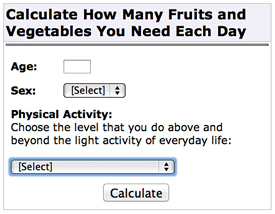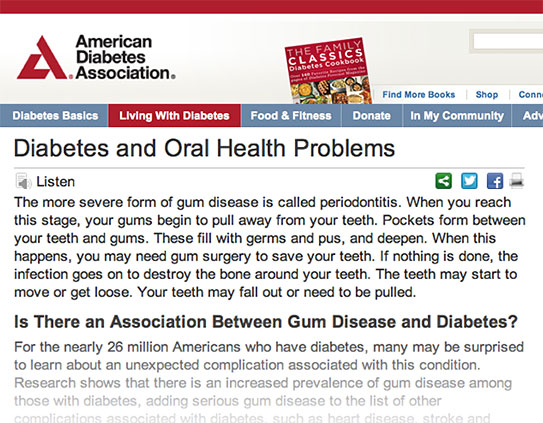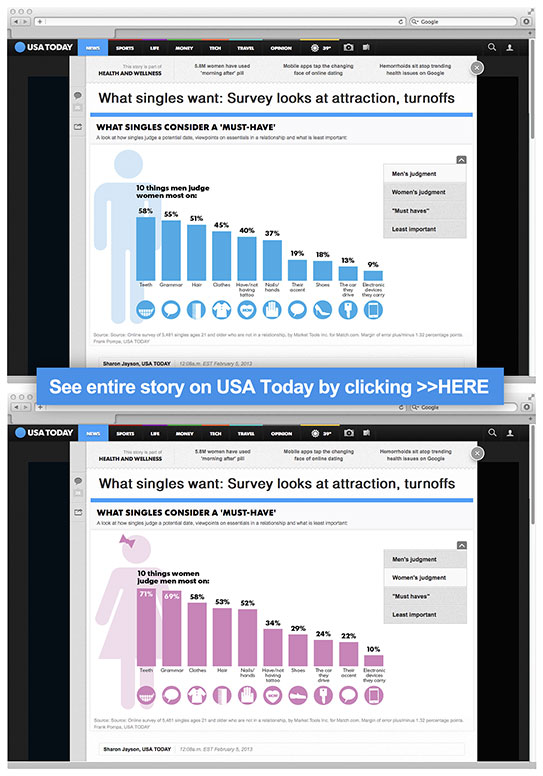
MARCH IS NUTRITION MONTH—an education and information campaign sponsored annually by the Academy of Nutrition and Dietetics. Of course the topic of eating enough fruits and vegetables is applicable to our overall health, but most of us don’t often think about the implications for our teeth, gums, and complete oral health.
Feed Your Teeth And Gums What They Really Want
Did you know that…
- Fibrous fruits and vegetables help clean your teeth.
- Magnesium from bananas can help restore tooth enamel.
- The Vitamin A in butternut squash can help heal sores in your mouth.
- Dark, leafy greens and broccoli have LOTS of calcium, which is great for our teeth.
- Vitamin C from citrus fruits helps keep our gums healthy.
- Replacing sugary, starchy snacks with healthy fruits and vegetables can lower your tooth decay risk.
- Yep… What’s good for your body is usually really good for your mouth too!
Are You Eating Enough Fruits And Vegetables?
 Not sure how many servings of fresh fruits and vegetables you need? Click on the calculator (left) to find out, based on your age, gender, and daily activity level. The recommended number of servings may be much higher than you think. And if you’re not consuming enough servings, here are some handy tips that will help:
Not sure how many servings of fresh fruits and vegetables you need? Click on the calculator (left) to find out, based on your age, gender, and daily activity level. The recommended number of servings may be much higher than you think. And if you’re not consuming enough servings, here are some handy tips that will help:
1. Switch up your snacks. Cookies and crackers are easy to eat because they’re so accessible. With a little effort, fruits and vegetables can be just as accessible. Slice apples, pre-cut vegetables (and if you need it, pre-make a favorite dip for them).
2. Include vegetables in your entrees. Load up sandwiches and pizzas with them. Incorporate them into burritos, pasta, scrambled eggs, etc.
3. Add fruits to desserts. Put berries in your yogurt, bananas in your cereal, and order the fruit tart instead of the chocolate cake. Even better, replace usual desserts with a fruit plate.
4. Experiment with different vegetables and vegetable cooking techniques. This will add variety! To start, try this one:
How To Roast Awesome Vegetables!
Your Teeth Love Vegetables. Your Oral Bacteria Loves Sugars.
We hope these ideas help you become the healthiest you can be. As one of your lifelong health partners, we’re concerned about both your overall and oral health. Do YOU have a few of your own ideas that will help others? Please share them below, or on our Facebook page!

 NEARLY EVERYONE KNOWS SOMEONE WHO is directly or indirectly affected by diabetes. Not only can diabetes be difficult to manage, but it can also increase a person’s risk for other major health problems—including oral health problems.
NEARLY EVERYONE KNOWS SOMEONE WHO is directly or indirectly affected by diabetes. Not only can diabetes be difficult to manage, but it can also increase a person’s risk for other major health problems—including oral health problems.
 YES, IT’S VALENTINE’S DAY—and what better day to talk about smiles, attraction, and relationships!? It’s probably never occurred to you to look to your dentist for dating advice. But the fact is that smiles have a surprising amount to do with attraction.
YES, IT’S VALENTINE’S DAY—and what better day to talk about smiles, attraction, and relationships!? It’s probably never occurred to you to look to your dentist for dating advice. But the fact is that smiles have a surprising amount to do with attraction.

 HAVE YOU EVER HEARD someone say that after you cut your finger, and it heals, that the scar tissue is stronger than normal tissue? Some opinions vary, but it appears that this notion is more myth than truth. But what about your teeth and your restorative dental work? Can a filling or a crown get a cavity?
HAVE YOU EVER HEARD someone say that after you cut your finger, and it heals, that the scar tissue is stronger than normal tissue? Some opinions vary, but it appears that this notion is more myth than truth. But what about your teeth and your restorative dental work? Can a filling or a crown get a cavity?